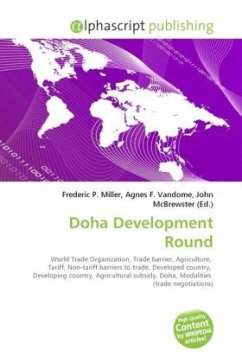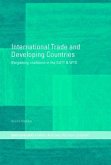In 2001, the WTO sponsored its first development oriented round of trade negotiations. Explicitly oriented towards the benefit of developing countries, the DR promised to bring significant changes to international trade. However, after nine years of negotiations, many have started to question whether the round can be brought to a conclusion that will satisfy its original objective. This failure has been attributed to several causes, but an underlying conflict between interests of developed and developing countries is the one most frequently cited. Accurate as the argument is, a closer look at the negotiations reveals underlying institutional problems within the WTO that have contributed greatly their failure. The lack of a clear policy prescription for the establishment of a development friendly DR has further highlighted inconsistencies between the official position of the WTO with respect to trade, and the standpoint of its members, particularly those from developed countries. Thus, a heterodox approach reveals that the success of the DR is contingent upon addressing the conflicting interests, and the reform of institutional problems within the WTO.








